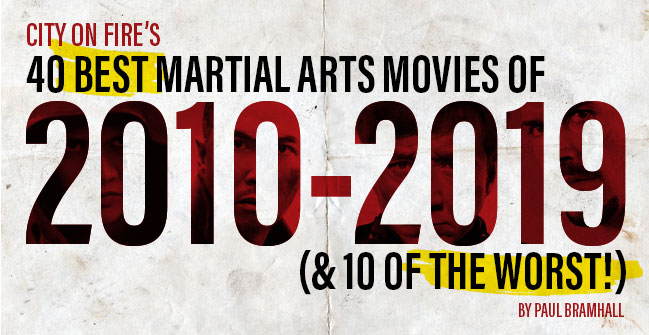
What would the end of a decade be without a look back on the movies which came out of it? We may no longer be in the golden era of fight flicks, but one only needs to spend a few moments thinking of the past 10 years, to realise there’s still plenty of talent with the enthusiasm and skill to create a great martial arts movie. From new blood like Iko Uwais and Max Zhang, to members of the old guard like Sammo Hung and Jackie Chan, the 10’s was a decade which gave everyone their moment to shine.
This list started out in early December as a Top 10, and as the month progressed, before it hit Christmas it had become almost 100. Realising it wasn’t supposed to be a record of how many martial arts movies I could remember watching over the last decade, the last days of 2019 where spent trimming and pruning, often after a restless night of wrestling with my conscience as to what should stay and what should go. The result? A curated collection of 50 movies – 40 the best of them, and 10 of them the worst – because nobody wants to read that much praise in a single feature.
The small print – the list is in chronological order, from the start of the decade to the end. See a movie on either side that you disagree with, or one that you feel is missing? Feel free to mention it in the comments! Differences in opinion are welcomed, as is the questioning of my intelligence, and then of course there’s always those movies that I simply didn’t have the chance to get to. Most of all, we hope you enjoy reading, and maybe even find a title or two that went under your radar.
So, without further ado, let’s kick this thing off –
Undisputed 3: Redemption (2010, USA) – If ever a movie isn’t supposed to exist, it’s Undisputed 3: Redemption, which made the vicious bad guy from 2006’s DTV sequel to Walter Hill’s 2002 boxing drama the main character. On paper it doesn’t make much sense, but onscreen, it’s easy to see why British martial arts star Scott Adkins’ portrayal of Boyka, the self-proclaimed “most complete fighter in the world”, developed such a cult following. Now the antihero of the piece, he has to return from crushing defeat to face off against the Latin Dragon, Marko Zaror. With a cast rounded off by the likes of capoeira master Lateef Crowder, Undisputed 3: Redemption set a new bar for US DTV action flicks.
Ong Bak 3 (2010, Thailand) – Another 3rd entry kicked off the 10’s, with Tony Jaa’s troubled follow-up to 2008’s Ong Bak 2. Made at a time when audiences still expected bone-crunching fight scenes from any movie with his name on it, almost a decade on Ong Bak 3’s uniquely spiritual take on the martial arts genre is well worth a re-visit. With an unusually deep narrative, the final entry in the saga is notable for pitting Jaa against his contemporary Dan Chupong. While their confrontation is more comparable to the likes of the action found in Yuen Woo-Ping’s Tai Chi Master than it is a flurry of elbows and knees, with the power of retrospect, it’s all the more admirable for doing something so different.
BKO: Bangkok Knockout (2010, Thailand) – After stepping in to help his protégé Tony Jaa complete Ong Bak 2 (2008) and Ong Bak 3 (2010), Thailand’s master of mayhem Panna Rittikrai (who sadly left us in 2014) returned to direct his first feature since 2004’s Born to Fight. With a plot thinner than a sheet of paper, as a movie BKO: Bangkok Knockout is arguably a watch-once affair, but as a showcase for martial arts it’s a non-stop rollercoaster of blistering action. Throwing most of Rittikrai’s stunt-team from the previous decade into featured roles, what’s lacking in acting chops, is adequately made up for by some of the most intricate and hard hitting exchanges to have graced the screen for a long time.
Jiu-Jitsu (2010, Japan) – Director Hiroki Asai’s tale of an arrogant Karate school challenging a dignified Jiu-Jitsu school may be lacking in budget, and just about everything else you’d normally associate with making a movie, however the good news is it delivers where it counts. Where that might be, is hinted at in the title, and that’s the action. The legendary Yasuaki Kurata produced, choreographed, and plays the wise Jiu-Jitsu sensei, with the rest of the cast being made up of real martial artists. Even better news, it that he also gets in on the action (and he’s definitely still got it!). So while you’ll find yourself wincing through the more dialogue driven scenes, when it comes to the epic finale, you’ll be unlikely to walk away disappointed.
The Man from Nowhere (2010, South Korea) – Since the Korean Wave in the early 00’s, its film industry has largely moved away from the martial arts movies that remained popular throughout the 90’s, however The Man from Nowhere showed that a slickly produced thriller could still go hand-in-hand with killer fight scenes. Casting Won Bin as a loner who runs a pawn shop, the kidnapping of his friendly kid neighbor reveals a set of skills from a past spent in the Special Forces. Yes, it heavily riffed on 2008’s Taken, however the action put it in a league of its own, thanks to a couple of tightly choreographed fights against Thai actor Thanayong Wongtrakul (ironically playing a Vietnamese assassin).
14 Blades (2010, Hong Kong) – It was impossible to get away from Donnie Yen in the late 00’s/early 10’s (in 2010 alone he also starred in Ip Man 2 and Legend of the Fist: The Return of Chen Zhen), and 14 Blades is one of the highlights from the busiest period of his career. A loose remake of the Shaw Brothers movie Secret Service of the Imperial Court, a visibly beefed up Yen goes up against the likes of Chen Kuan-Tai, and has a cast full of faces from old-school kung fu flicks, including Sammo Hung, Fung Hak-On, and Wu Ma. Successfully capturing the distinctly Shaw Brothers feel of old, 14 Blades is a refreshingly unpretentious martial arts adventure, and one of the few watchable movies director Daniel Lee has made.
True Legend (2010, Hong Kong) – At the time of its release True Legend was a big deal. The first time for Yuen Woo-Ping to step into the director’s chair solo for 15 years, and the first time for Vincent Zhao to headline a big budget kung fu flick since the late 90’s. An early experiment with using 3D technology in the kung fu genre, while this element wasn’t entirely successful, the kung fu itself (courtesy of the Yuen Clan) was 100% on point. Andy On stole the show as the villainous master of the Five Venoms Fist, complete with ghostly white skin and sewn to the flesh body armour. His character should have stuck around longer than he did, but even in its current form True Legend still delivers a worthy dose of kung fu action.
Bad Blood (2010, Hong Kong) – Nobody is ever going to mistake Dennis Law for being a good director, but he sure knew how to throw together an action flick. After successful collaborations with fight choreographer Nicky Li on 2006’s Fatal Contact and 2008’s Fatal Move, in 2010 they proved that it was no fluke by reuniting for Bad Blood. Essentially a riff on the Hong Kong Triad flicks of old, I’d be willing to argue that Andy On and Jiang Luxia have never looked as good as they do here, with a healthy mix of both one on one and one versus many fights recalling the 80’s kickboxing era of HK action flicks. Why Jiang Luxia wasn’t able to build on her career as a leading martial arts actress, is one of the life’s biggest mysteries.
KG: Karate Girl (2011, Japan) – For a while at the beginning of the 10’s, it looked like Japan was looking to cultivate their own martial arts genre, with Karate expert Rina Takeda leading the charge. It may long have since fizzled out, however this 2011 unrelated follow-up to 2009’s High Kick Girl saw Takeda relegated to second fiddle in her own movie, thanks to a scene-stealing turn from 14 year old Hina Tobimatsu. Armed with an array of aerial kicks that belied her young age, despite the sometimes ‘waiting to be hit’ nature of the choreography, Tobimatsu’s performance was worth the price of admission alone. While Takeda’s gone on to carve out a place for herself in Japans film industry, sadly Tobimatsu was never heard from again.
The Raid (2011, Indonesia) – In 2009 we were introduced to a new director and actor partnership – that of Gareth Evans and Iko Uwais. Considering almost any South East Asian martial arts star in the 00’s drew comparison to Tony Jaa, it would take 2011’s The Raid for fans to really sit up and realise that Uwais was the next big thing. With a simple but effectively tense plot (that BKO: Bangkok Knockout could have learnt a thing or two from), The Raid featured a SWAT team whose mission is to take out a drug lord residing on the top floor of a high-rise. Their plans to do things quietly quickly unravel, and instead we’re treated to an almost non-stop assault of Silat brutality, one which is still influencing action cinema today.
Wu Xia (2011, Hong Kong) – Peter Chan’s homage to the 1966 seminal Shaw Brothers movie The One Armed Swordsman wasn’t content with just remaking its source material, it completely reimagined it, and then went one step further by casting the original One Armed Swordsman, Jimmy Wang Yu, as the villain. With a plot that often resembles a kind of kung fu CSI (the initial fight scene deconstruction is a joy to watch), Wu Xia took one of the oldest genres in Chinese cinema, and made if feel fresh again. Stellar performances from leading men Donnie Yen and Takeshi Kaneshiro anchor the whole thing, while the appearance of Kara Hui further casts its ties back to the Shaw Brothers productions of old.
The Lost Bladesman (2011, China) – Made at a time when China was still in the midst of Three Kingdoms-mania, kicked off by John Woo’s Red Cliff, The Lost Bladesman ironically got lost amongst many of the other battle movies bring cranked out around the same time. However any movie which casts Donnie Yen as the legendary Guan Yu (and of course his guandao!) is worth a watch, and while Yen’s acting is certainly less than legendary here, to see his choreography applied to a Three Kingdoms setting makes The Lost Bladesman definitely worth a look. Plus, Yen gets to face off against Andy On, in a fight which is far superior to their face off in Special ID 2 years later.
Death Grip (2012, USA) – Fans of the San Francisco based Stunt People had been hoping for another full-length feature ever since 2006’s riotous Contour, and in 2012 they got it with Death Grip. Once again Eric Jacobus directed and starred, and this time he brought Alpha Stunts and Power Rangers alumnus Johnny Yong Bosch along for the ride. Taking a more serious approach to the narrative, fans were split on the use of the technique which saw Jacobus imagining fights in his head, unbeknownst to the audience. What can’t be argued though, is that the action on display was of the highest level, featuring a furious knife duel, a hilarious real time slow motion fight, and the promised one on one pitting Jacobus against Yong Bosch.
Universal Soldier: Day of Reckoning (2012, USA) – Director John Hyams reinvigorated the Universal Soldier franchise with 2009’s Regeneration, but it was Day of Reckoning which showed just how much could be done with the genre. A unique hybrid of psychological horror and action, the plot saw Scott Adkins relentlessly pursuing Jean Claude Van Damme for the murder of his family, a journey which sees him facing off against the likes of Dolph Lundgren and Andrei Arlovski along the way. His fight against Arlovski in particular is a showstopper, and remains the most viscerally hard hitting confrontation in the British stars filmography. Give me another pairing of Hyams and Adkins over another Undisputed any day.
CZ12 (2012, China) – The last time Jackie Chan sat in the director’s chair for one of his own movies before CZ12 was 1991’s Armour of God II: Operation Condor. Combine that with his claim it would likely be his last time to headline a big blockbuster, and the “is it, isn’t it?” third instalment in the Armour of God series came with some high expectations. Despite some silliness, surprisingly almost all of them where met, with Chan giving it his all in the action scenes, and even allowing some of his co-stars (former Taekwondo champion Zhang Lan-Xin is a highlight) to shine. A welcome reminder of just what a creative genius Chan could be when it came to fight scenes, CZ12 would have been a worthy swan song (emphasis on ‘would’).
Ninja: Shadow of a Tear (2013, USA) – After a lukewarm reception to 2009’s Ninja, the director and actor partnership of Isaac Florentine and Scott Adkins looked to make amends with its 2013 sequel. Amends were most definitely made. The plot essentially comprises of Adkins rampaging around Myanmar on the hunt for who killed his wife, and that’s it. The casting of the forever underutilised Kane Kosugi proved to be a stroke of genius, with his confrontation against Adkins being worthy of inclusion on any Greatest Fights list, orchestrated by one of the best fight choreographers working today – Tim Man (who also gets his own fight scene against Adkins). There may be a lack of ninjas, but with action this good, who cares?
Bushido Man (2013, Japan) – After warming up with the likes of the Hard Revenge Milly flicks and Red Tears, director Takanori Tsujimoto reached his zenith with 2013’s Bushido Man, a wonderfully stripped back tale of a man wondering around Japan challenging masters of combat in their respective fields. Like a modern day Japanese take on Seven Grandmasters, lead Mitsuki Koga finds himself battling a cast comprised of real martial artists and stuntmen, resulting in a move which feels refreshingly old-school. An obvious lack of budget, and an almost criminal approach to a fight with nunchucks are minor deterrents, but overall Bushido Man’s promise to deliver on its tagline of ‘Eat and Fight’ is one that’s kept.
The Grandmaster (2013, Hong Kong) – Wong Kar Wai’s homage to the martial arts genre was over a decade in the making, as has come to be expected from the Hong Kong auteur, but it was certainly worth the wait. Casting Tony Leung in the role of Ip Man (Anthony Wong played him the same year in Ip Man: The Final Fight), under the tutelage of the Yuen Clan the action on display was the perfect accompaniment to the musings on what it means to be a martial artist. Featuring the now iconic rain drenched alley way fight scene, equally impressive action performances from Zhang Ziyi and Chang Chen, and a taste of what was to come from Max Zhang, The Grandmaster is another Wong Kar Wai masterpiece.
Vengeance of an Assassin (2014, Thailand) – In what would turn out to be Panna Rittikrai’s swansong after his untimely passing in the same year, Vengeance of an Assassin saw Rittikrai reunite with Dan Chupong for a rather hokey tale of two orphan siblings looking to uncover the truth behind their parents murder. Like most Thai action movies from the era, plot isn’t what we’re here for (and at least it didn’t involve elephants), it’s the action, and on that action front it delivers. Chupong as always is willing to be on the receiving end of an almost gratuitous amount of punishment, but he’s also more than capable of dishing it out, resulting in a movie which for most of its runtime feels like we’re back in 2003.
The Raid 2 (2014, Indonesia) – Director Gareth Evans said that The Raid 2 is the movie he originally wanted The Raid to be, but due to budget constraints they had to simplify what they could do. Those budget constraints resulted in the most talked about martial arts movie since Ong Bak, and meant that when the sequel did arrive, it was suitably epic. Expanding the scope from a single building to the whole of Jakarta, the tale of Iko Uwais’ cop going undercover introduced the iconic characters of Hammer Girl, Baseball Bat Boy, and the Assassin. The latter, played by Cecep Arif Rahman, led to one of the greatest final fights ever committed to screen, topping off a 150 minute runtime full of jaw dropping action.
Once Upon a Time in Shanghai (2014, Hong Kong) – Philip Ng takes the lead after appearing in numerous movies as that supporting character who shows up for a fight scene, and while his acting won’t win any awards, he certainly has the moves. A remake of The Boxer from Shantung, the odd color palette is a compromise between director Wong Ching-Po’s desired black and white, and producer Wong Jing’s wish for it to be in color. Thankfully the decision doesn’t impact the quality of the fight scenes, choreographed by Yuen Woo-Ping and Yuen Cheung-Yan, and the cast is filled with old-school faces like Chen Kuan-Tai (the original Boxer from Shantung!) and Sammo Hung. Ng’s fight with co-star Andy On is a highlight.
One Million K(l)icks (2015, Germany) – Representing Europe of the list, One Million K(l)icks is essentially a showcase for the talented German martial artist Mike Möller to show off what he can do. Thankfully, he can do a lot, and most of it involves punching or kicking people. Wrapped up in a tale of fight videos going viral and a couple of corrupt cops, amidst the many fight scenes Möller shows an ability to also inject some welcome humor into proceedings, resulting in a surprisinly coherent movie. Highlights include his confrontations with Taekwondo expert Cha-Lee Yoon, and Li Yan-Long, a stalwart of such old-school kung fu movies as South Shaolin Master.
SPL II: A Time for Consequences (2015, Hong Kong) – Creating an unrelated sequel to the movie that put the HK action genre back on the map may seem like a cynical move on paper, but onscreen it was anything but. Providing Thai superstar Tony Jaa with his Hong Kong debut, his role as a conflicted prison guard remains his most substantial outside of Thailand, and he gets to show off both his action and his acting chops. Wu Jing released Wolf Warrior the same year, catapulting him to stardom in China, so this will likely be the last time we see him headlining a contemporary HK action flick. Going up against a scene stealing Max Zhang, if that is the case, then it’s a worthy showcase for all involved.
Ip Man 3 (2015, Hong Kong) – Donnie Yen may have claimed that 2010’s Ip Man 2 was his last, but that all changed in 2015. Now with Danny Chan as Bruce Lee, Mike Tyson as a boxing gangster, and Max Zhang as an arrogant Wing Chun master, it was understandable why Yen changed his mind, and the results delivered. Pitting Wing Chun against the likes of Muay Thai, western boxing (much more effectively than it did in the sequel), and for the first time, Wing Chun itself, the balance of action and plot hit the right note. For the second time in the same year Max Zhang stole the show (leading to his own spin-off), with a final fight that served as a reminder that kung fu cinema was still alive and well.
Kung Fu Jungle (2015, Hong Kong) –Donnie Yen’s fifth appearance on the list (and it won’t be his last), headlining director Teddy Chen’s modern day homage to Hong Kong action cinema. Framed around a kung fu serial killer played by Wang Bao-Qiang, from an action perspective Yen takes a backseat for most of the runtime, allowing Bao-Qiang to shine in fights against the likes of Xing Yu and Fan Siu-Wong. Incorporating various styles, the action on display is a joy to watch, as are the cameos that form a who’s who of the kung fu genre. The final confrontation brings Yen and Bao-Qiang together, as the pair duel it out on a busy highway that brings the kung fu goodness.
Final Master (2015, China) – Xu Haofeng is quite the talent, having directed, written, and choreographed all 3 of his movies, the latest of which marks his best work to date – Final Master. Here he casts Liao Fan as a newly arrived Wing Chun master looking to open a school in Tianjin, he just needs to defeat the town’s current kung fu masters to do so. The charm of Final Master lies in its commitment to realism, which in turn, often results in a surreal (and often humorous) experience for the audience. Wise master’s drop oversized swords too heavy to carry, shoe laces come undone in the middle of a fight, and confrontations are over in the blink of an eye, resulting in one of the most unique and satisfying kung fu movies of the era.
Boyka: Undisputed (2016, USA) – 6 years since the last entry, Boyka returned with a 4th instalment in the Undisputed series, this time with what’s easily the smallest budget (and running time) of the whole series. Despite the ravages of piracy having an impact on the production values, what can’t be argued is that choreographer Tim Man is at the top of his game, working miracles out of the short shooting time. The talent in-front of the camera no doubt helped, providing star Scott Adkins with a healthy pool of opponents, including fellow choreographer Brahim Achabbakhe and man mountain Martyn Ford. Whether the world needs a 5th Undisputed is debatable, but if it stops here, Boyka is a worthy conclusion.
Re:Born (2016, Japan) – It felt like fans had been waiting for Tak Sakaguchi to make a full-blooded martial arts movie ever since his debut with Versus in 2000, and somewhat ironically, they got it with his 2016 retirement movie Re:Born. Featuring a new fighting style called the Zero Range Combat System, created by fight choreographer and villain of the piece Yoshitaka Inagawa, the focus of said style is on using bladed weapons to eliminate enemies as swiftly as possible. Death Trance director Yuki Shimomura goes for a “if it’s not broke, then don’t fix it” approach, throwing Sakaguchi and a small army of opponents together in a forest, and then letting them go at each other with satisfying results.
Karate Kill (2016, Japan) – The 70’s Karate exploitation movie is dragged kicking and screaming into the 10’s with Karate Kill, director Kurando Mitsutake’s follow-up to Gun Woman. The result of a chance meeting between Mitsutake and Karate practitioner Hayate (so cool he doesn’t need a surname), basing a movie around its stars martial arts skills may be a risky proposition, but in this case it paid off. Searching for his missing sister in America, who’s been taken by a cult led by a crazed madman, Hayate is given ample opportunities to show off his talents, leaving little doubt he’s the real deal. Watch out for the rotating 360 shot which sees him battling multiple opponents in a hostess bar!
The Bodyguard (2016, Hong Kong) – Over 20 years since he last directed, choreographed, and starred in a movie, in 2016 the 64 year old Sammo Hung returned with The Bodyguard. While hardly wall-to-wall action, the smattering of fight scenes make The Bodyguard worthy of inclusion to show just how astute and aware Sammo remains when it comes to choreographing fights. No longer able to flip and kick like he used to, the reliance on close quarter exchanges with a need to inflict as much damage as possible by doing as little as possible, is a joy to watch. As a swansong to an action career spanning close to half a century, The Bodyguard is a worthy send-off.
Sword Master (2016, China) – In Sword Master everything that’s old is new again, as director Derek Yee helms a remake of the very movie he was the star of 40 years prior, the 1977 Shaw Brothers flick Death Duel. Casting Peter Ho and Kenny Lin as the leads, Yee creates a wuxia that blends a modern approach to filmmaking with the traditions of the past, and it’s a successful combination. Action choreographers Yuen Bun and Dion Lam, working together for the first time, craft a number of imaginative sword duels. From one on one’s to group melees, the two veterans show a keen sense for applying their skills to contemporary filmmaking, striking the right balance between the performer’s skill and CGI spectacle.
Iron Protector (2016, China) – Let’s face it, Iron Protector’s bombastic trailer didn’t do it any favours. However forget about all the ridiculous claims, and what you’re left with is a pulpy high impact fight flick. Director and star Yue Song’s ambitions are clear, and he goes at them with an enthusiasm that comes off the screen. Eschewing any kind of CGI, it’s impossible not to smile when Song faces off against a small (well, it’s really not that small) army of attackers, and even flying kicks through the windscreen of a moving car like it’s still the 80’s. With the sole purpose of assaulting the viewer with kicks to the face and bodies thrown into breakable props, Iron Protector may be a hot mess, but it’s a gloriously entertaining one.
Paradox (2017, Hong Kong) – An official spin-off of the SPL franchise, Paradox sees Louis Koo travel to Thailand to find his missing daughter, where he teams with local cops Wu Yue and Tony Jaa. For anyone that witnessed Koo’s lame attempt at a fight scene in Flash Point 10 years prior, you’ll be relieved to hear that under choreographer Sammo Hung, he looks much better. Most of the heavy lifting still goes to Yue, with Jaa’s role amounting to little more than an extended cameo, and bad guy of the piece Chris Collins. The finale, pitting Yue against Collins (each wielding a pair of machetes and cleavers respectively), would make you swear you’re watching an 80’s Hong Kong action flick, and that’s not a bad thing.
The Brink (2017, Hong Kong) – Two of the decades kung fu scene stealers – Max Zhang and Wu Yue – got a chance to share the screen together in 2017 thanks to director Jonathan Li’s debut The Brink. The dockland setting provided a welcome change of surroundings, allowing for some nautical themed action which was a breath of fresh air (including an underwater action scene). Max Zhang puts forward his case here to be the 10’s answer to the 90’s angry cop character than Donnie Yen left his stamp on, and for the most part it’s a convincing one. The final fight on a boat in the middle of a typhoon is executed surprisingly well, proving that the Hong Kong action genre still has it.
Accident Man (2018, USA) – After pitting Scott Adkins and Marko Zaror against each other for a 2nd time in 2017’s Savage Dog, director Jesse V. Johnson teamed with Adkins again for Accident Man. A passion project for Adkins, the adaptation of an early 90’s British comic comes with a stellar cast of fighting talent, including Michael Jai White, Ray Park, Amy Johnston, and Tim Man (who, like in Ninja: Shadow of a Tear, is also on fight choreography duty). Everybody gets a chance to shine, with a highlight being the fantastic 2 versus 1 that pits Jai White and Park against Adkins, delivering a suitably brutal confrontation. The best news? A sequel is already on its way, and should be arriving at some point in 2020.
Revenger (2018, South Korea) – Korea hasn’t made martial arts movies for a long time, preferring to stick with thrillers that contain expertly crafted fight scenes, but that changed with 2018’s Revenger. Another passion project, this time it’s for martial artist Bruce Khan, who casts himself as the lead and choreographs the action. After minor roles in a handful of Hong Kong flicks, here Khan takes center stage and proves a formidable kicking machine, with a sense of power behind his blows making it immediately apparent he’s the real deal. The 6 minute final fight against Park Hee-soo is a rare pleasure in this day and age, with a drawn back camera allowing us to see everything, and a refreshing lack of quick cuts.
The Night Comes for Us (2018, Indonesia) – Initially planned to come hot on the heels of The Raid 2, The Night Comes for Us was mysteriously cancelled in 2015, before rising from the ashes in 2018 thanks to Netflix. It’s a good thing it finally saw the light of day, as despite a ropey plot, it serves up some of the most insanely gory (as is expected from director Timo Tjahjanto) fight action ever put on film anywhere. Joe Taslim from The Raid delivers as a leading man, Iko Uwais is cast against type as the villain (and he kills it, and anyone that crosses him), and Julie Estelle returns minus the hammer and the sunglasses. The action is great throughout, but the best is definitely saved for last, when Taslim and Uwais face-off.
Triple Threat (2018, USA/China) – Marking director Jesse V. Johnson and star Scott Adkins’ 3rd movie to be released in 2018, this USA-China co-production was a martial arts movie fans wet dream, bringing together Iko Uwais, Tony Jaa, and Tiger Chen. The trio alone bring enough onscreen fighting talent to fill 10 movies, but when you pit them against the likes of Scott Adkins and Michael Jai White, you’re left with a movie that’s harder to get wrong than it is right. Thankfully fight choreographer Tim Man brings the goods, and with ample opportunities for everyone to do their thing, even the “this has to be there to ensure Chinese distribution” sub-plot is easy to overlook.
Shadow (2018, China) – Director Zhang Yimou’s return to the wuxia genre 12 years after Curse of the Golden Flower was a triumphant one, creating one of the most visually sumptuous movies of the decade. The tale of an injured commander and a commoner who he’s trained to act as his double, the countdown to a duel with a superior enemy acts as a gradual tension builder, as both personal and professional allegiances begin to fray. Eschewing the flights of fancy many wuxia’s employ, choreographer Ku Huen-Chiu goes for a more grounded strategic approach to the action, utilising a bladed umbrella that’s a joy to watch onscreen. Battles in the rain have never looked as beautiful as they do here.
Ip Man 4: The Finale (2019, Hong Kong) – Donnie Yen has appeared in this list 5 times, and Scott Adkins 6, so it feels only fitting that the final entry brings them both together in the same movie. The final (this time they really mean it – the title says so) entry in the Ip Man franchise, this time Yen travels to America, and ends up dealing with a pair of racist Karate practicing marines in the form of Adkins and Chris Collins. Everyone is in top form, with Wu Yue continuing to be a scene stealer thanks to a slickly choreographed Tai Chi fight against Yen’s Wing Chun. Yuen Woo-Ping delivers his best choreography for years, and Ip Man 4 finishes the 10’s on a high note, giving hope that the kung fu genre will still be alive and well in the 20’s.
& Now for the worst –
The Kick (2011, Thailand/South Korea) – When The Kick was announced the excitement was palpable, imagine the hard hitting action of Thailand mixed with the grittiness of a Korean thriller, it was a recipe for success. Sadly the wrong ingredients came to the table, with The Kick being very much a Thai production. Made at a time when audience tastes had moved away from the hard hitting flicks of the early 00’s, and where more in-tune with teeth grating comedy, The Kick is a torture to get through. K-Tigers members Na Tae-joo and Tae Mi do their best, however Tae-joo’s B-boy meets Taekwondo routine induces feelings of violence, and this would be the first of many productions to completely waste the talents of Jija Yanin.
Shadowguard (2011, Hong Kong) – Otherwise known as the movie that Michael Biehn disowned (check out the interview here), and it was his directorial debut! After working together on 2005’s Dragon Squad (that incidentally belongs on any 00’s Worst Movies list), producer Bey Logan invited Biehn to China to direct and feature in the debut of a new action talent he’d scouted, Phoenix Chou. Basically a remake of The Last Blood, not even Fan Siu-Wong’s choreography could save this turkey, with his action undermined by a lack of power and commitment from those performing it. Combined with bargain basement production design, and a ‘new talent’ who was never heard of again, Shadowguard is one to avoid.
Tom Yum Goong 2 (2013, Thailand) – Almost 3 years in the making, Tom Yum Goong 2’s laboured production is all there to see onscreen. From its initial announcement in 2011, Tony Jaa’s return to his sophomore starring role was one mishap after another – somewhere along the way it was decided to shoot in 3D, then Jija Yanin became pregnant while filming, then it was decided to bring in RZA as the villain. Jaa’s heart clearly wasn’t in it, and the result is one that sees him sleepwalking through the fight scenes, while Yanin’s co-starring role is awkwardly reduced to a supporting character. The dumbest decision of all? A final fight which pits Jaa against RZA. The studio should have paid people to watch it.
Special ID (2013, China) – In 2013 Clarence Ford hadn’t directed anything since 2006’s Dating a Vampire, so handing him a Donnie Yen action vehicle probably made sense at the time. Unfortunately, Special ID is an unwieldy mess. With a major selling point being Yen’s angry cop versus Vincent Zhao’s gangster, the promise of a fight was quickly snuffed after Zhao quit mid-filming, sighting Yen as being too difficult to work with. Replaced by Andy On, while we still get a healthy fill of fight scenes, Yen’s fondness for MMA overly-dominates here, losing the exciting mix of HK choreography and grappling that he did so well in SPL and Flash Point. Sadly, watching grown men roll around on the floor together just isn’t that thrilling.
Rise of the Legend (2014, Hong Kong) – Reimagining the character of Wong Fei Hung has led to some of kung fu cinemas greatest hits – Gordon Liu in Challenge of the Masters, Jackie Chan in Drunken Master, and Jet Li in Once Upon a Time in China. Eddie Peng isn’t a part of those hits. Aiming to make Wong Fei Hung ‘gritty’ for the cool kids, Rise of the Legend sees the character go undercover as a member of the Black Tiger triad gang, led by a villainous Sammo Hung. It’s a cool concept, but undone by a plodding runtime, and fight scenes that rely too much on CGI and wires. If you do make it to the end, prepare for the embarrassment of an action scene set in a CGI blazing warehouse, then block it from your memory.
Kung Fu Yoga (2017, China/India) – Much like CZ12 never made it clear if it was an Armour of God sequel, so Kung Fu Yoga never makes it clear if it’s a sequel to The Myth, but let’s say it is. Let’s also say it’s one of the worse movies of Jackie Chan’s career. Half Bollywood nonsense, half Chan and his young cohorts running away from CGI lions and hyenas, Kung Fu Yoga is a train wreck. If anything it’s more a promotional piece for the relationship between China and India than a movie (or anything to do with yoga for that matter). Chan and director Stanley Tong prove to be tone-deaf, and when proceedings end with a fight scene being interrupted to break out into a Bollywood dance number, you’ll wish you were too.
Kickboxer: Retaliation (2018, USA) – Admittedly, it was a toss-up between this and 2016’s Kickboxer: Vengeance as to which one should be on the list, but in the end it goes to Retaliation, the 2nd in a trilogy (of which the 3rd has thankfully yet to materialise). An oddity of a movie, strange casting choices like footballer Ronaldinho, Mike Tyson, and Icelandic strongman Hafþór Júlíus Björnsson (who plays the villain) make for painful viewing. Alain Moussi spends more time in slow motion than he does at normal speed, as we’re forced to sit through every one of his flying kicks take a minute to unfold onscreen, be it against bikini-clad assassins wearing glow-in-the-dark lipstick, or Thai stuntmen waiting to be hit. Truly awful.
Iceman: The Time Traveller (2018, Hong Kong) – When a sequel that was apparently shot back-to-back with its 2014 original takes 4 years to be released, that’s generally a sign of trouble, and Iceman: The Time Traveller is a textbook example. What started off as a remake of the 1989 Yuen Biao flick The Iceman Cometh with the Donnie Yen vehicle Iceman 3D (a fun but throwaway entry in Yen’s epic 2005 – 2015 filmography), turns into something borderline unwatchable in this mind-bending follow-up. Containing action scenes that can best be described as insipid (there’s some debate as to whether Yen and Yasuaki Kurata actually filmed their fight separately), even the most diehard Yen fan couldn’t recommend this one.
Master Z: The Ip Man Legacy (2018, Hong Kong) – Most likely the most controversial choice this side of the list, but for me Master Z is the perfect example of everything that’s wrong with modern kung fu movies. An aesthetic that’s too clean, bloodless decapitation, CGI props instead of breakable ones, inappropriate wirework, and a plot so focused on telling us that foreigners are evil, it forgets to give us a reason why we should care. Max Zhang reprises his role from Ip Man 3, but it’s a diluted version of the character, and the edginess that made him so cool previously has evaporated into thin air. Ironically the only person to come out of this one looking good is a foreigner, with David Bautista making a suitably imposing villain.
Invincible Dragon (2019, Hong Kong) – Director Fruit Chan’s first foray into the martial arts genre is, without doubt, the biggest head scratcher of the decade. What on earth where they on when filming this!? Invincible Dragon pits Max Zhang, unfortunately appearing for a 2nd time in the ‘Worst of’ section, against former UFC fighter Anderson Silva, and all you need to know is that their confrontation involves a bungee jump. Proceedings are dominated by Zhang’s unintentionally hilarious attempt to play a character well beyond his range (look out for the prosthetic potbelly!). Silva fares no better, as the least convincing serial killer of the century, and then of course, we have an actual dragon who makes an appearance. Madness.
That’s a wrap, so let’s all look forward to what the next 10 years has in stall. 2020, bring it on!


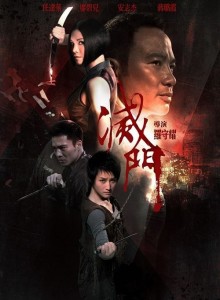
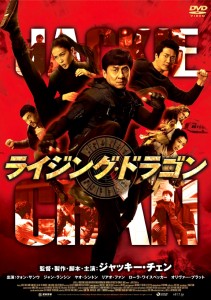
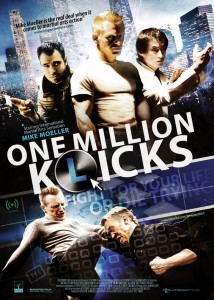
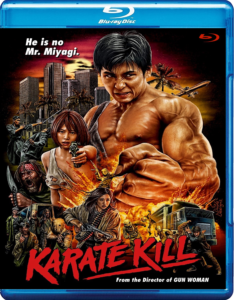
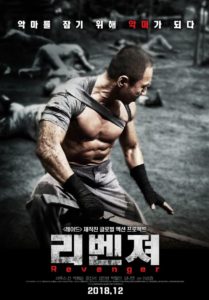
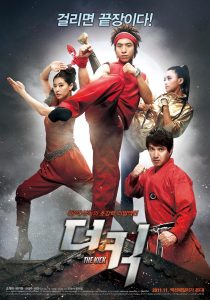



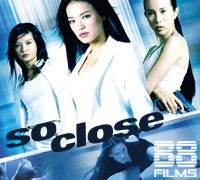
I’m not sure I agree with the Special ID and Master Z assessment but good list otherwise
Yep, those are 2 flicks that I support, but I’m glad a bunch of my other choices are getting some praise. (Once Upon a Time in Shanghai I feel is under appreciated.)
I gotta say that I enjoyed The Kick much more than BKO which felt more like a stunt reel than a movie. The fusion of TKD and hip hop reminded me of capoeira, and I didn’t think the humor was as grating as in other Thai comedies.
I know it was before the decade, but no way is Dragon Squad a worst anything! I agree with brns.com’s 8/10 review of it.
Vaness Wu’s performance in ‘Dragon Squad’ killed it for me, with his characters ridiculous insistence on filming everything, because “memory is false”. 14 years have passed, but I still found myself involuntarily wincing whenever he appeared in ‘Ip Man 4’!
It’s understandable. The movie is fluff and it seemed to be going for a Shiri type of vibe without it clicking. I saw potential in Vaness Wu, but he was only a little bit better in Ip Man 4.
I know these aren’t “technically” martial arts films (even Kung Fu Yoga barely counts in my opinion, despite having the word “Kung Fu” in its title), but I would have included I Saw the Devil and The Foreigner – both movies are solid action movies and have enough of that MA element. The Foreigner is just good, all around – one of Jackie’s best! Another one is 13 Assassins!
‘The Foreigner’ was one of the one’s I toiled with, but in the end I consider it more of a political thriller with action than a martial arts flick. With that being said, the Chinese cut of the movie could well be argued to belong on the list, particularly with the different cut of the forest fight against Rory Fleck Byrne.
‘I Saw the Devil’ – man, you chose to mention 2 movies that both have 2 different versions! You have my attention with this one though, as I don’t recall any scenes which could be classed as MA related in either the International or Korean version. Which part were you thinking of?
“With that being said, the Chinese cut of the movie could well be argued to belong on the list, particularly with the different cut of the forest fight against Rory Fleck Byrne.” I wasn’t aware of this! Protector-treatment eh?
I also wasn’t aware of this (two versions). From what I remember, there were bits and pieces of MA-like fight scenes scattered throughout – the biggie probably being the garden fight scene.
Nice list, I’ve seen maybe half of these films. I thought Furie was great, I would have included that, and I think Chinese Zodiac is in the wrong list. I thought that film was awful and easily the worst Jackie Chan film I’ve seen (including the Lo Wei years and Kung Fu Yoga).
Was thinking the same about Chinese Zodiac, but that’s one I need to revisit!
I think Savage Dog ranks among one of the best movies Scott Adkins has made so far.
Invincible Dragon…
……..
Jesus Christ! What was that pile of sh*t?!
Can you tell me where I can get a copy of ju-jitsu? I have looked and looked.
As far as I’m aware it was only ever released on Japanese DVD (with no English subtitles). Here’s a link to purchase it through the Japanese amazon –
https://www.amazon.co.jp/柔術-JYU-JITU-レンタル落ち-倉田保昭/dp/B00DQGADOS/
That’s the only version I could find as well. Thanks
look in the trash
You forgot Gallants, 2010… Better than any movie on this list, sorry. 😀
It’s nice to see a mention for Hina Tobimatsu but I’d like to say that she did appear in one more film after KG Karate Girl, the uneven Salvage Mice. She has a number of good to great exchanges with Nagano Julia.
“Ironically the only person to come out of this one looking good is a foreigner, with David Bautista making a suitably imposing villain.”
He has ZERO charisma, ZERO acting abilities… He looks more like a bull than a bullfighter. And sorry, bit ugly as… Should have been a lumberjack.
Man after seeing Ip Man 4 in the cinemas I’ve been on a modern martial arts movie kick as of late. Thank you for this list.
Star Wars: Opium Awakens
Thanks for putting in the time to compile this, I’ve become a fan of your site this past year. Seems like there’s a few potential gems I should check out from the list.
However, just can’t agree with a lot of the choices for those that I *have* seen on here (Karate Kill – weak editing/basic choreography, Sword Master – cookie cutter China CGI fest in a long line of many this decade, Karate Girl – amateur filmmaking undercut talented stars, Paradox – Louis Koo shouldn’t fight period, wasted Jaa, laborious to watch, Triple Threat – underwhelming effort and biggest disappointment due to slapdash camera work and run of the mill choreography, wastes its star power esp Yanin, feels rushed)
The Villainess deserves a spot on here for its gloriously ambitious and occasionally outrageous but always thrilling fight/action scenes, and there’s enough of them to qualify. I would also put Headshot in here, it’s less colorful but also more grounded and consistent than Night Comes for Us. Finally a shout out to High Kick Angels, a trashy but ambitious zero budget affair that is also a loving tribute to 80s HK cinema, and which I enjoyed more than KG or Karate Kill.